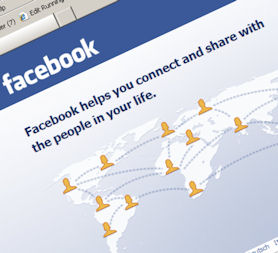Facebook hits 500 million user milestone
After just six years since its Harvard conception, the social networking site Facebook has now revealed it has half a billion users. Technology Correspondent Benjamin Cohen reports.

It was announced today that more than 500 million users now actively use Facebook – up from just 150 million in January 2009. Founded by an American teenager at college in 2004, the site has seen a recent boom in users to about eight per cent of the world’s population.
The social networking site came under recent criticism for “complicated” piracy settings and fears that private information may be unwittingly shared online. Its delays in installing a CEOP panic button were also condemned by campaigners who said young vulnerable users were at risk from bullying and predatory paedophiles.
Last month Facebook founder and CEO Mark Zuckerberg predicted there was a “good chance” the site could have one billion users in the next three to five years. In another victory earlier this year Facebook edged past internet giant Google to become the top website in the US.
In Britain the website reaches half the total UK population over the age of 14. In announcing the milestone Facebook declared the website was the “shortest distance between two people”.
With social networking users growing worldwide concerns remain over the ease information is shared online.
Facebook collects very specific data on its hundreds of millions of users,” reports Channel 4 News Technology Correspondent Benjamin Cohen.
“This is gold dust to some businesses who use the site’s highly targeted adverts to reach the exact demographic they are appealing to. This in turn brings Facebook a reported $1bn of revenue a year.
“But as more and more people sign up to Facebook there are concerns over how much data people are willingly or sometimes unwittingly putting online and what that means for their privacy.
“The company was forced to change the way it allowed people to control their privacy settings as they were accused of being deliberately hard to use. Critics argue people should be more guarded about handing over every bit of our lives to Facebook.
“But with a wide range of users happy to impart information on a daily basis to the site, it seems the power of Facebook is yet to be undermined.”
'How Facebook is intrinsic to my life'
To me there is no doubt that Facebook has changed Britain. In some ways I can't imagine life without it, writes Technology Correspondent Benjamin Cohen.
I don't know all of my friend's email addresses or often have their phone numbers on me. Most weekends I've organised what I'm up to thanks to Facebook, if it wasn’t for the website I'd probably not know who is having a party or be able to congratulate a friend on their engagement.
It's intrinsic to my life in a way I didn't expect when I signed up to it nearly four years ago.
Read more